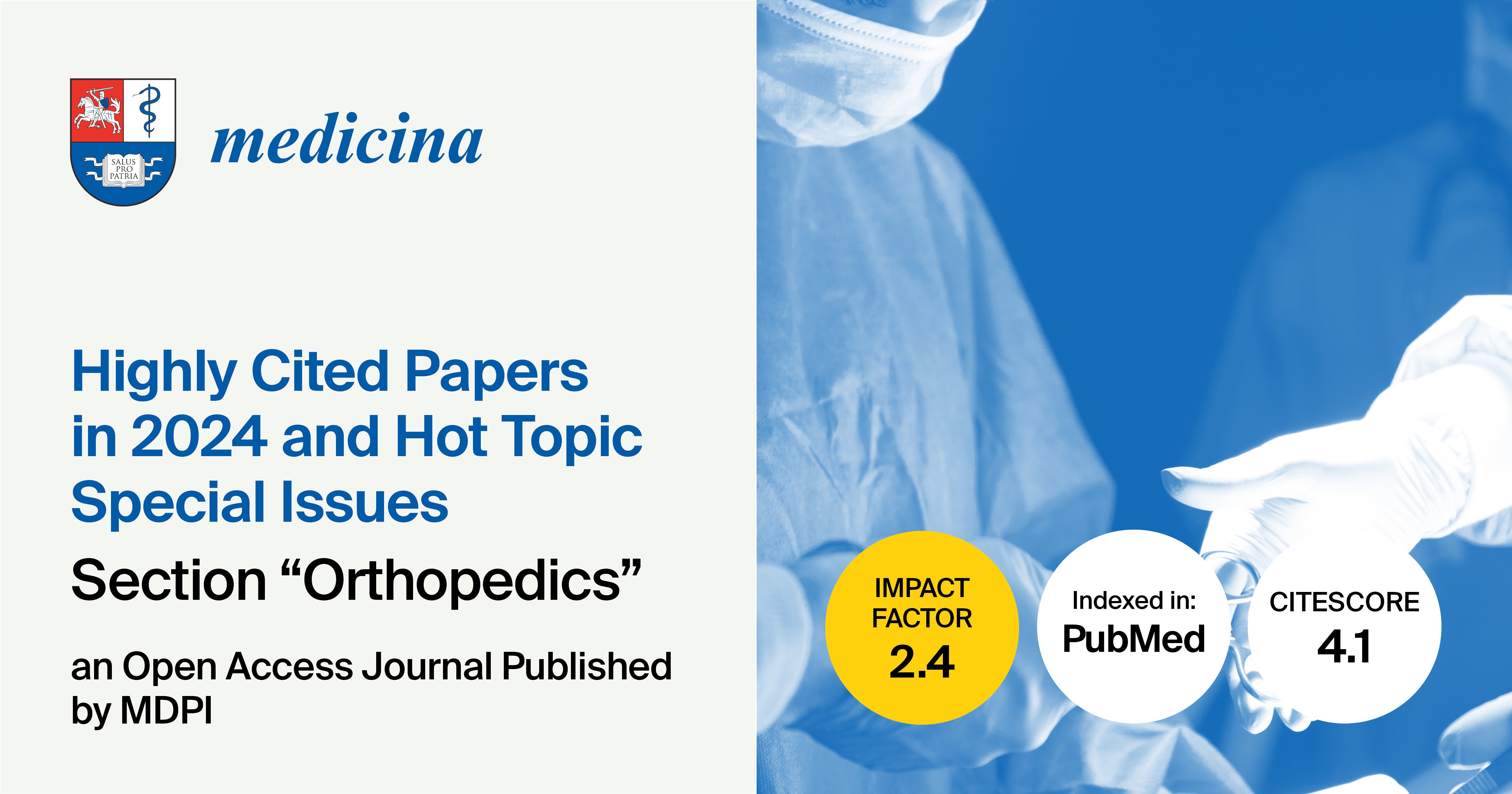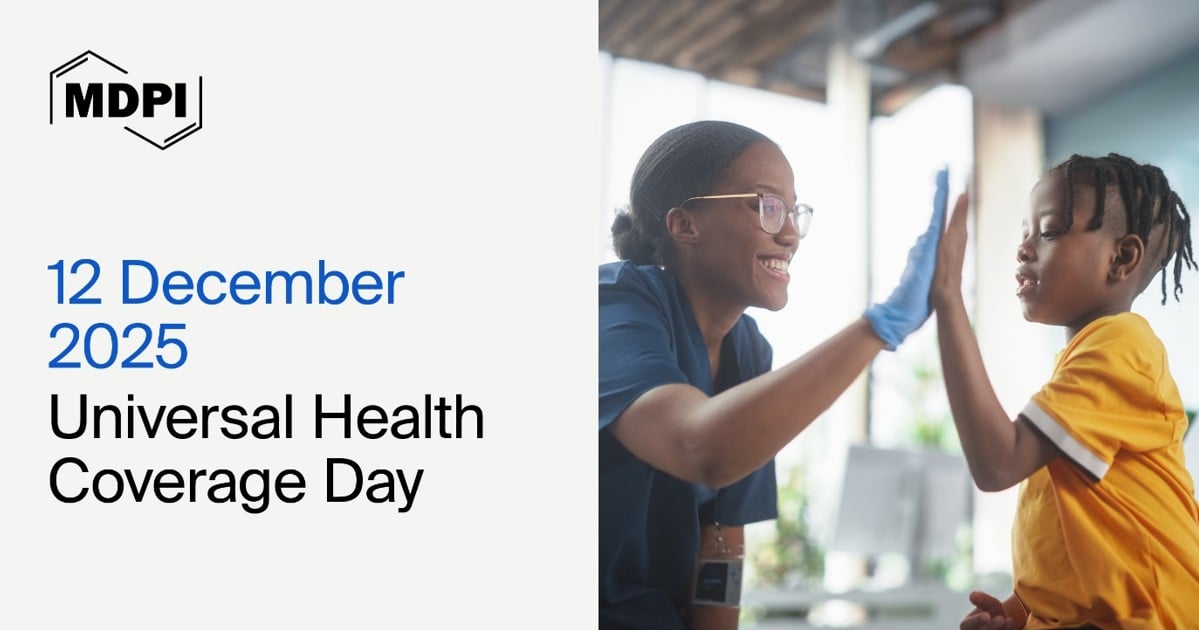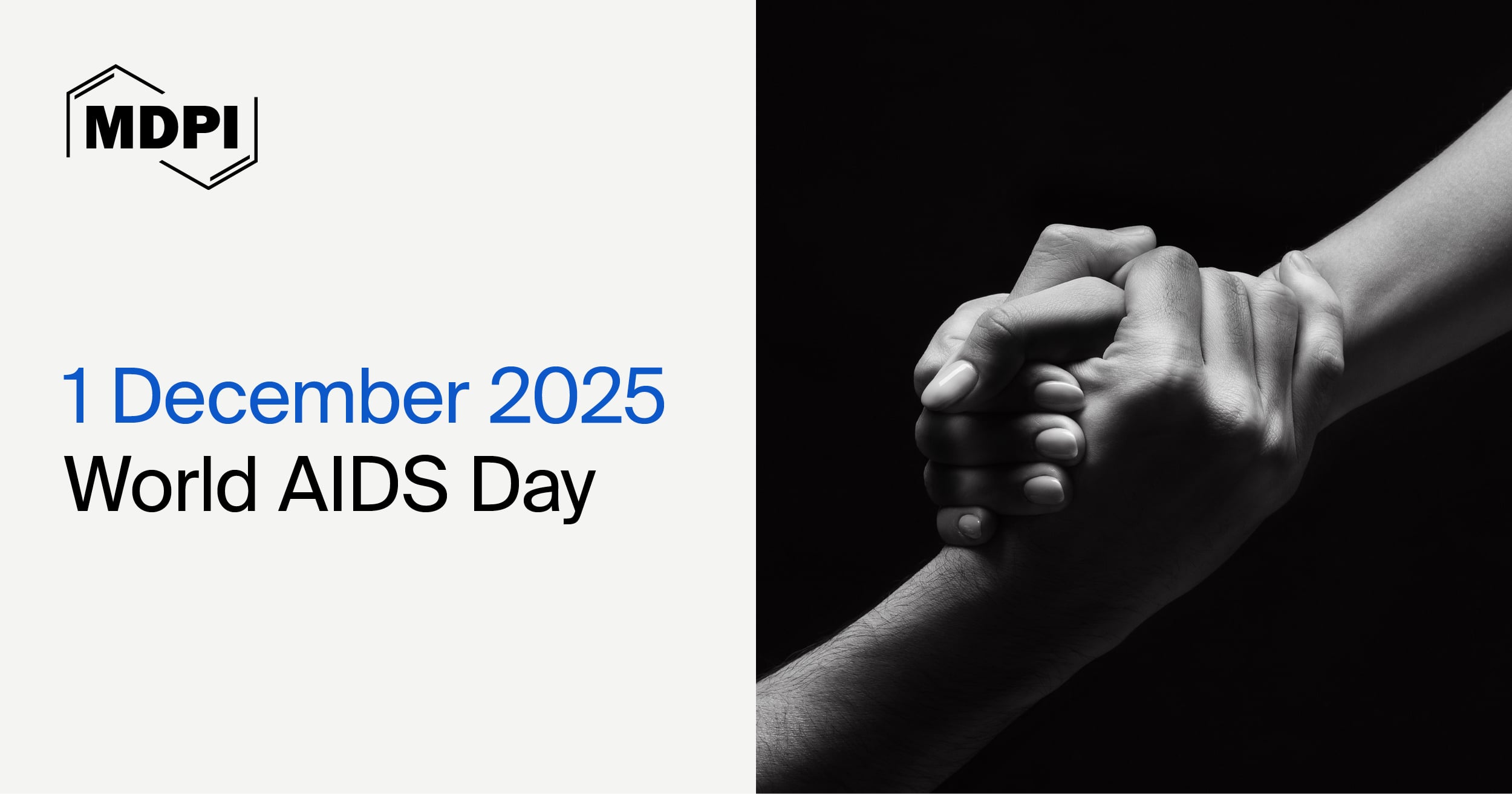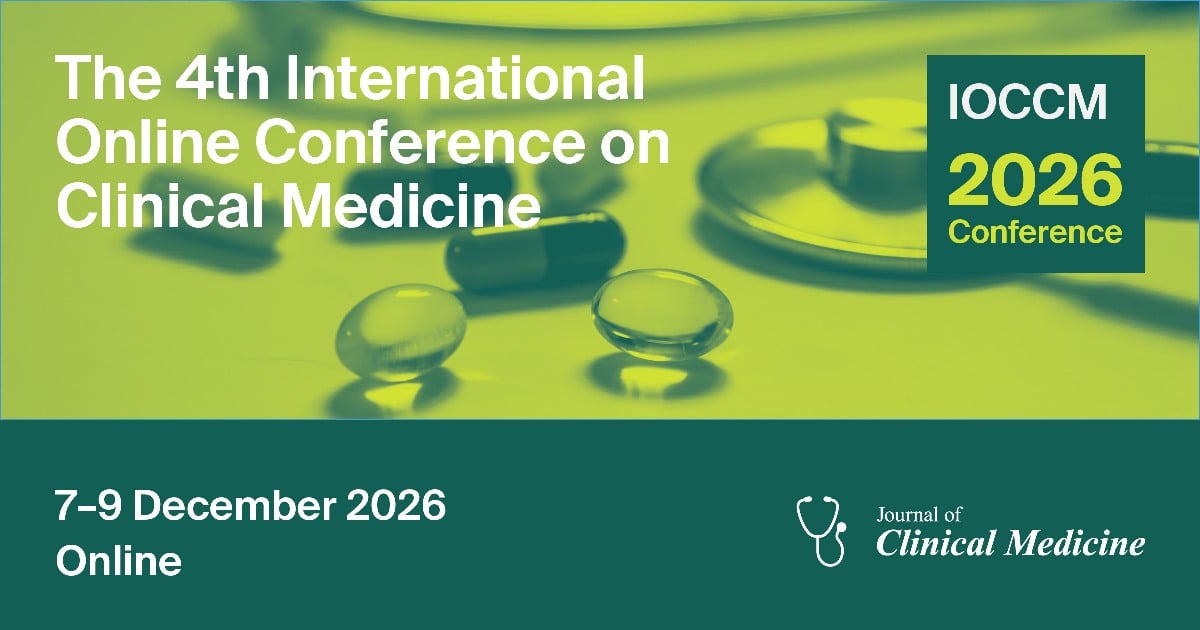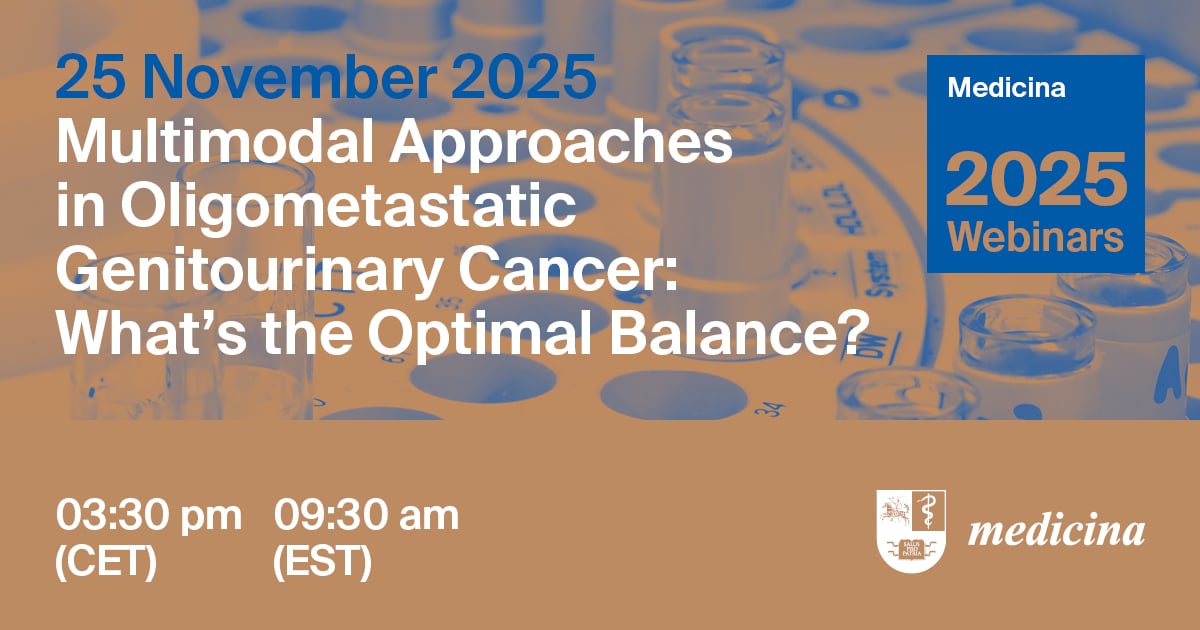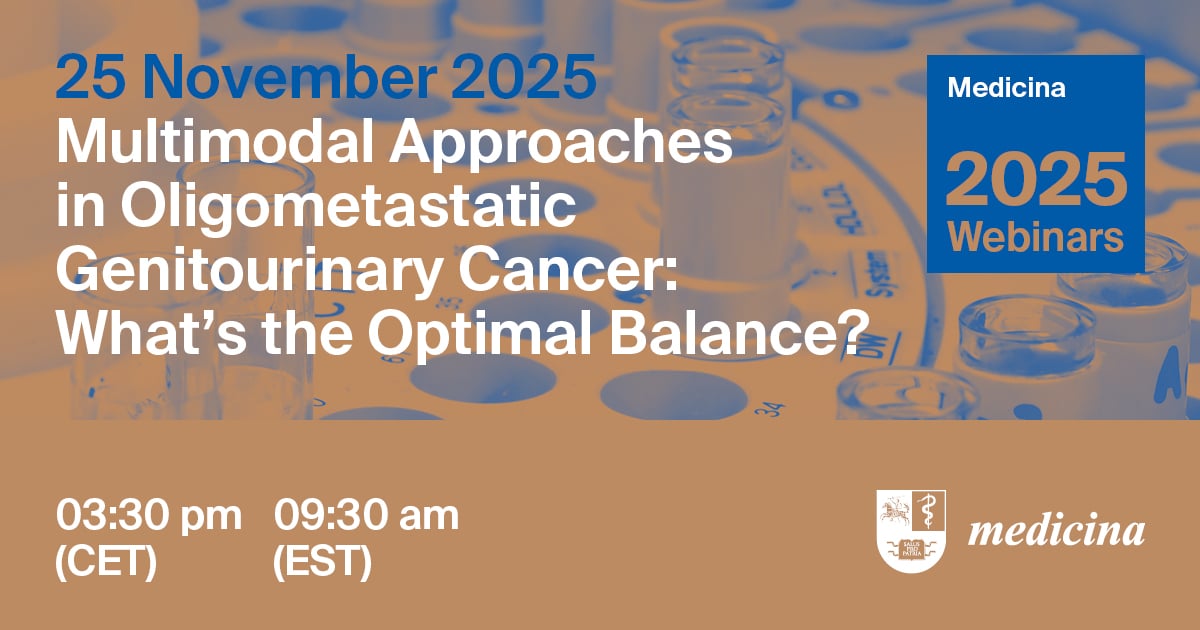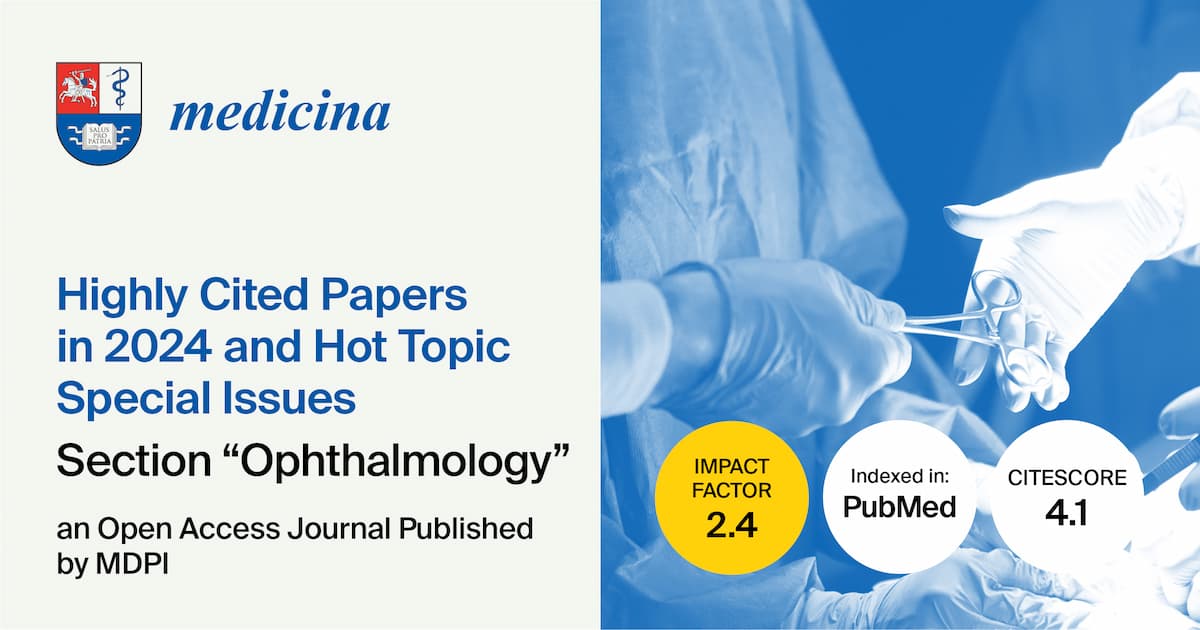- 2.4Impact Factor
- 4.1CiteScore
- 18 daysTime to First Decision
News & Conferences
Latest News & Announcements
Latest Conferences
Propose a Conference Collaboration
Promote and publicise your upcoming conference with MDPI.
All News & Conferences
News & Announcements
Medicina | Highly Cited Papers in 2024 and Hot Topic Special Issues in the “Orthopedics” Section
24 December 2025
News & Announcements
Universal Health Coverage Day—“Unaffordable Health Costs? We’re Sick of It!”, 12 December 2025
11 December 2025
News & Announcements
Article Layout and Template Revised for Future Volumes
11 December 2025
News & Announcements
Medicina | Highly Cited Papers in 2024 and Hot Topic Special Issues in the “Neurology” Section
4 December 2025
News & Announcements
World AIDS Day, 1 December 2025
1 December 2025
MDPI Conference
The 4th International Online Conference on Clinical Medicine
7 - 9 December 2026
MDPI Conference
Medicina Webinar | Multimodal Approaches in Oligometastatic Genitourinary Cancer: What’s the Optimal Balance?, 25 November 2025
25 - 25 November 2025
News & Announcements
Medicina Webinar | Multimodal Approaches in Oligometastatic Genitourinary Cancer: What’s the Optimal Balance?, 25 November 2025
20 November 2025
News & Announcements
MDPI Launches the Michele Parrinello Award for Pioneering Contributions in Computational Physical Science
6 November 2025
News & Announcements
Medicina | Highly Cited Papers in 2024 and Hot Topic Special Issues in the “Ophthalmology” Section
6 November 2025
News & Announcements
MDPI INSIGHTS: The CEO's Letter #28 - WSF11, Nobel Laureates, Proofig AI, Romania Summit, STM and FBF
4 November 2025
of 16


